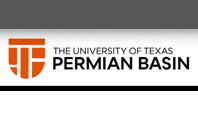
Publications & Presentations
Acute Stress Disorder, Depression, and Tobacco Use in Disaster Workers Following 9/11
Document Type
Article
Publication Date
10-2010
Abstract
Early posttraumatic psychiatric disorders have not been well studied in disaster workers. This study examined the rates of probable acute stress disorder (ASD), probable depression, increased tobacco use, and their associated risk factors in 9/11 World Trade Center disaster workers. Surveys were obtained from 90 disaster workers (e.g., medical personnel, police, firefighters, search and rescue) 2-3 weeks after 9/11. Nearly 15% of disaster workers had probable ASD and 26% had probable depression. Probable ASD and depression were highly related to functional impairment. The risk for ASD was increased for those with 9/11-specific disaster exposures, more pre-9/11 trauma exposures, and the peritraumatic dissociative symptom of altered sense of time. Disaster workers who were younger, non-White, or who had increasing numbers of peritraumatic dissociative symptoms were more likely to have probable depression. More than half of tobacco users increased their tobacco use after 9/11. Additionally, all tobacco users with probable ASD and almost all tobacco users with probable depression increased tobacco use. Rapid mobilization of resources for early screening and intervention and health promotion campaigns aimed at improving adverse health-related behaviors may be helpful for this high-risk group.
Recommended Citation
Biggs, Q. M., Fullerton, C. S., Reeves, J. J., Grieger, T. A., Reissman, D., & Ursano, R. J. (2010). Acute stress disorder, depression, and tobacco use in disaster workers following 9/11. The American Journal of Orthopsychiatry, 80(4), 586-592. doi:http://dx.doi.org/10.1111/j.1939-0025.2010.01063.x

